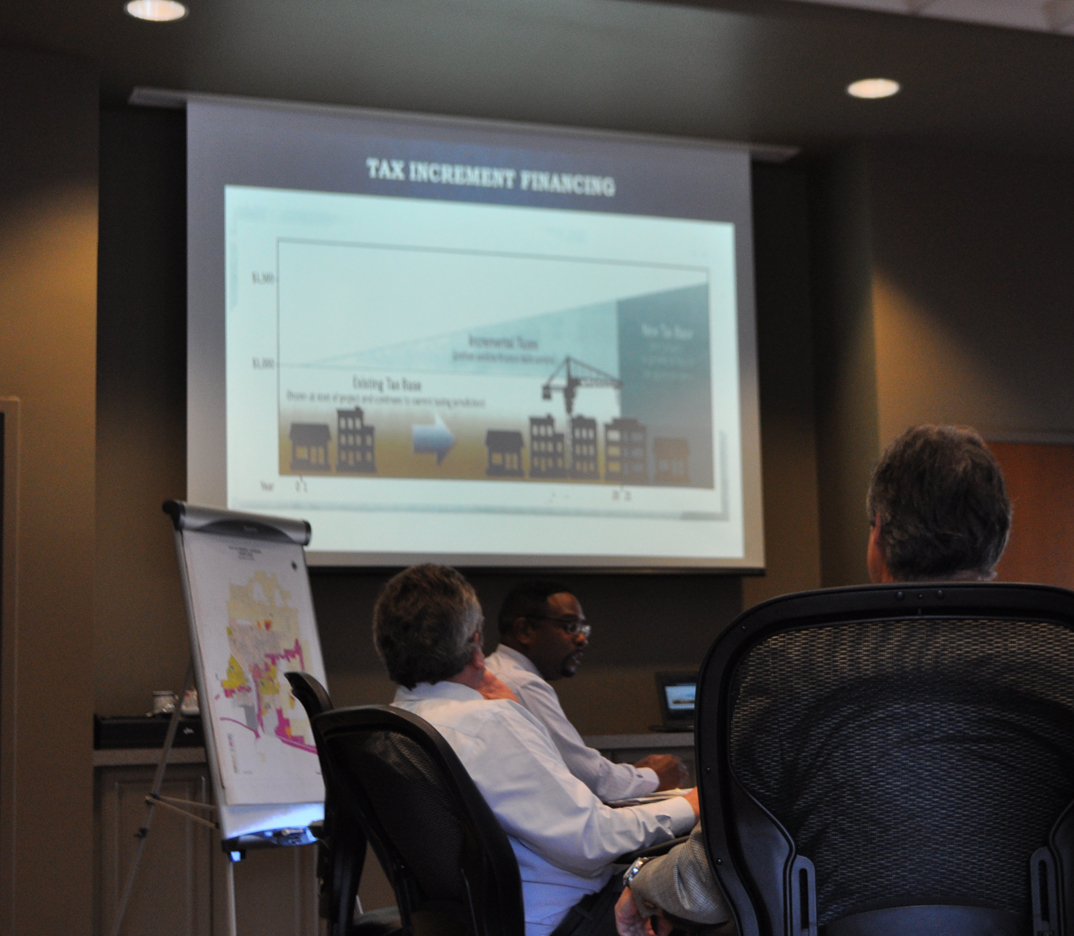Property and business owners appear to be optimistic about two economic development strategies that could help Minden grow.
During a city council workshop Thursday, developers, property owners and business owners learned about Tax Increment Financing and Payment in Lieu of Taxes and how it could potentially build and attract new business.
Greg Carey, who owns property all along the service road near Interstate 20, says he sees no down sides.
“As a property owner, it’s more incentive for a buyer to come in and spend money on a project that’s going to develop sales tax, because that’s where the TIF incentive is,” he said.
“All that property that’s there now, which needs to be hotel, restaurant, retail is ideal for that piece of property.”
Minden Economic Development Director James Graham introduced the concept of the TIF district to the Minden City Council in January, explaining how the district would work. For Minden, it would only be commercial property, leaving out residential areas as much as possible.
The idea in these districts, he says, is to generate revenue for infrastructure development. Businesses that participate in the TIF district would collect a sales tax that goes directly to that district for any kind of infrastructure needs, whether it is water and sewer development, or a new face on a building.
Graham says in all there will be four districts, although one proposed district is still in the works. The first district would be downtown Minden. The second would be on Davenport Drive and extend to areas around the Sibley Road, which is very motor vehicle friendly for commercial and noncommercial and offers product distribution via commercial trucking, he said. The third would be the service road area near I-20, which offers prime real estate and easy access to I-20.
Terry Gardner, downtown property owner and president of the Minden Main Street Commission, says this will offer a great incentive to help Minden grow, especially with the state’s budget crisis. He says with budget cuts, grant money for programs like Minden Main Street will probably dry up.
“As far as the TIF district, I think all of downtown Minden should be in a TIF district, which will help all the property owners keep their buildings alive and vibrant,” he said. “Of any small town, downtown is important. Whether they use that money now or the city just approves it, I think it would be a good idea for all future property owners. So when they buy, they can participate in TIF to help improve their property.”
Jerry Madden, chairman of the Webster Parish Tourism Commission, says the most important aspect of this is creating jobs.
“And the only way you’re going to get jobs here is build,” he said. “Any way we can legally find to build infrastructure and to bring people back, we have to have jobs. From tourism, what little bit we can play to bring these structures and businesses back to our community, we’ll benefit down the road. We may see some of it in our lifetime, but it’s the future that I’m planning on.”
Another incentive discussed Thursday was PILOT. David Wolf, attorney with of Adams and Reese LLP in New Orleans, says PILOT came about as a way to continue to offer “tax breaks” and incentives for developers and businesses. It allows businesses to pay a certain amount “in lieu,” or instead of, the annual taxes they would normally owe for a certain period of time, he said.
When Congress scrapped tax exempt bonds, Wolf says entities and municipalities figured out a way to offer incentives with a regular taxable bond by offering developers a way to pay less than the annual taxes owed.
“Now the payments are less, and that becomes the incentive,” he said. “We create a mechanism by which property can be transferred to an industrial development board, economic development board, a TIF district, a city or other kinds of subdivisions like this. They take the title to the property, lease it back to the company, and negotiate the payment anywhere from zero up to the 100 percent of taxes they would otherwise pay.”
The primary purpose of PILOT is development of property that wouldn’t be feasible otherwise.



